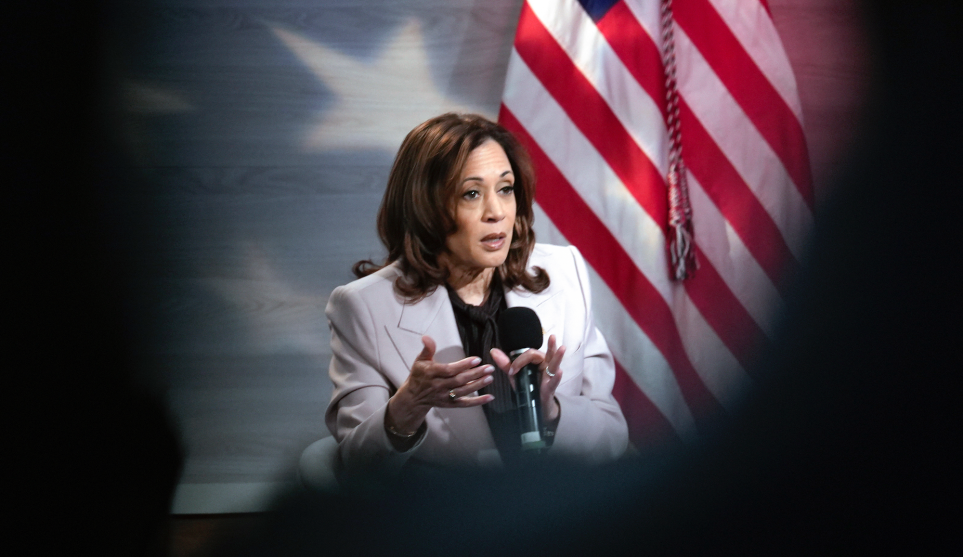
Kamala Harris delivers remarks at a campaign rally in Madison, Wisconsin. Daniel DeSlover/Zuma
Kamala Harris is starting to respond to calls by media outlets and voters to share a detailed economic policy plan ahead of November, including making billionaires “pay their fair share.”
Harris delivered a speech to the Economic Club of Pittsburgh on Wednesday, along with the release of a policy book that lays out her strategy to lower costs and “create an opportunity economy” for the middle class.
In Pittsburgh, Harris attempted the delicate balance of reaching out to undecided voters while also appealing to those already excited by her campaign as she replaced President Joe Biden as the Democratic nominee.
“I believe we shouldn’t be constrained by ideology, and instead should seek practical solutions to problems,” Harris said. “Part of being pragmatic means taking good ideas from wherever they come.”
The result was a speech that didn’t do much to elaborate on policy, instead seeking to avoid language or commitments that could reinforce Republicans’ description of Harris as a “Marxist.”
But the 82-page document, “A New Way Forward for the Middle Class,” gets into some of those details, including “making the wealthiest Americans play by the same rules as the middle class.”
To do this, Harris proposes a minimum income tax for billionaires—at an amount yet to be disclosed—and “commonsense tax reforms for corporations.”
The policy guide cites the federal budget for fiscal year 2025—according to which Donald Trump’s 2017 tax breaks brought effective corporate tax rates to less than 10 percent—and a study by the Center on Budget and Policy Priorities, a nongovernmental think tank, that found that large companies didn’t pass the profits from those cuts to workers or into other investments.
Harris states that she will raise the corporate tax rate to 28 percent—notably still less than the 35 percent rate for the richest companies that was in place from 1993 until Trump’s 2017 cuts. In the document, the vice president emphasized the difference with Trump’s tax policy, which by 2020 allowed at least 55 of the largest American corporations to pay no federal income tax and to make $3.5 billion in rebates.
Voters remain concerned about economic policy. According to a September poll conducted by the New York Times and Siena College among undecided voters in Arizona, Georgia, and North Carolina, about one in eight said Harris’ handling of the economy was their most pressing concern. What her latest economic strategy means for such voters remains to be seen.
















